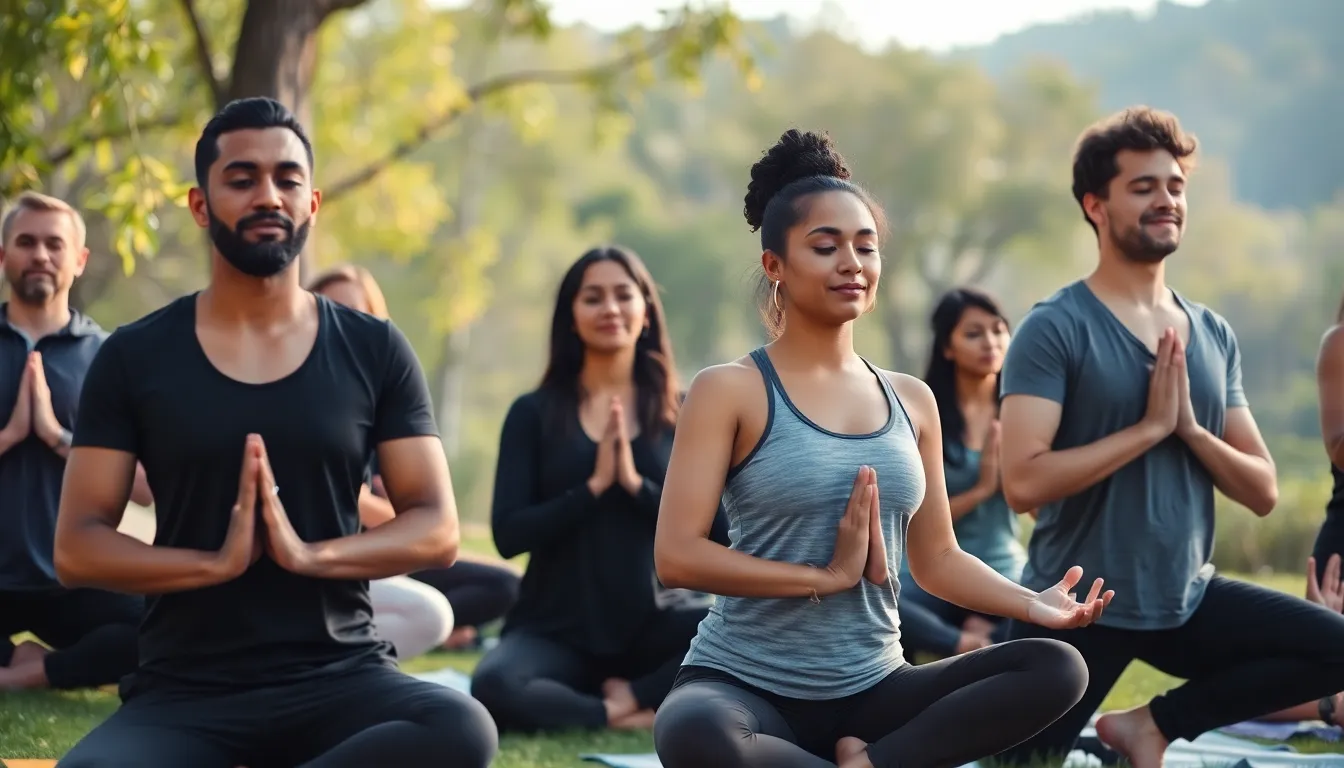In today’s fast-paced world, the quest for wellness has become more essential than ever. People are increasingly seeking holistic approaches that nurture both the body and mind, embarking on unique wellness journeys tailored to their individual needs. These journeys often encompass a blend of physical fitness, mental health practices, and nutritional awareness, creating a comprehensive pathway to overall well-being.
As individuals navigate their personal wellness paths, they discover the profound impact of mindfulness, exercise, and balanced nutrition. Each journey is distinct, reflecting personal goals and challenges. By exploring various strategies and practices, they not only enhance their health but also cultivate a deeper understanding of themselves. This article delves into the transformative power of wellness journeys, offering insights and inspiration for anyone ready to embark on their own path to a healthier, more fulfilling life.
Table of Contents
ToggleUnderstanding Wellness Journeys
Wellness journeys encompass the personal paths individuals take to achieve holistic well-being. These journeys reflect a blend of physical health, mental clarity, and emotional stability.
Definition of Wellness Journeys
Wellness journeys refer to the individual experiences and processes that lead to improved health and overall well-being. They include various components such as fitness routines, dietary changes, emotional awareness, and mindfulness practices. Each journey is unique, shaped by personal goals, preferences, and challenges. Individuals may engage in wellness journeys to enhance physical fitness, address mental health issues, or cultivate mindfulness.
Importance of Wellness Journeys
Wellness journeys are essential for multiple reasons. They promote physical health, leading to reduced risks of chronic diseases. Engaging in regular exercise and healthy eating habits contributes to longevity and improved quality of life. Mental health benefits arise from mindfulness and stress management practices, fostering emotional resilience and self-awareness. Additionally, wellness journeys facilitate personal growth, enabling individuals to set and achieve meaningful goals.
| Aspect | Benefits |
|---|---|
| Physical Health | Reduces chronic disease risks |
| Mental Health | Enhances emotional resilience |
| Personal Growth | Promotes achievement of meaningful goals |
Phases of Wellness Journeys

Wellness journeys unfold in distinct phases that guide individuals toward holistic well-being. The initial phases focus on self-awareness and goal setting, laying the foundation for lasting change.
Self-Awareness
Self-awareness marks the first phase of a wellness journey. Individuals reflect on their current health status, identifying areas needing improvement. This phase involves recognizing emotional triggers, understanding habits, and acknowledging thoughts impacting well-being. Tools such as journaling and mindfulness exercises foster self-discovery, enabling individuals to evaluate their physical, emotional, and mental states accurately. Through increased self-awareness, individuals can pinpoint their strengths and weaknesses, creating a personal framework for improvement.
Goal Setting
Goal setting follows self-awareness, aligning personal aspirations with actionable objectives. Individuals set SMART goals—specific, measurable, achievable, relevant, and time-bound—to facilitate progress. Clear goals enhance motivation and create a roadmap for the wellness journey. Individuals may choose fitness milestones, dietary changes, or mindfulness practices as focal points. By tracking their journey, individuals reinforce their commitment and celebrate progress, whether reaching a weekly exercise goal or improving dietary choices. Effective goal setting transforms aspirations into tangible outcomes, promoting sustained success in enhancing overall wellness.
Methods for Implementing Wellness Journeys
Implementing wellness journeys involves integrating various practices that promote mental and physical well-being. This section explores effective methods for enhancing individual wellness.
Mindfulness Practices
Mindfulness practices emphasize awareness and presence in daily life. Techniques such as meditation, deep breathing, and guided imagery promote relaxation and mental clarity. Individuals can engage in mindfulness activities such as:
- Meditation sessions: Regular sessions enhance focus and reduce stress.
- Breathing exercises: Controlled breathing lowers anxiety levels and calms the mind.
- Mindful walking: Walking in nature fosters connection and encourages reflection.
- Journaling: Writing thoughts and feelings promotes emotional clarity and self-discovery.
- Body scans: Scanning the body heightens awareness of physical sensations and promotes relaxation.
These practices not only improve mental health but also cultivate emotional resilience, aiding individuals in managing life’s challenges more effectively.
Physical Health Activities
Physical health activities form a crucial part of wellness journeys. Incorporating regular exercise boosts physical fitness and enhances overall well-being. Key activities include:
- Aerobic exercise: Engaging in activities like running or cycling improves cardiovascular health.
- Strength training: Lifting weights or bodyweight exercises promotes muscle strength and metabolic health.
- Yoga: Combining movement, breath, and meditation improves flexibility and mental focus.
- Group sports: Participating in team sports fosters social connections and motivates consistent activity.
- Outdoor activities: Hiking or swimming in natural settings enhances physical health and reduces stress.
Implementing a varied exercise regimen encourages individuals to stay active, contributing to long-term health benefits and enhancing quality of life.
Challenges in Wellness Journeys
Navigating a wellness journey presents various challenges that individuals must confront. Primary obstacles include overcoming barriers and maintaining motivation.
Overcoming Barriers
Identifying barriers serves as the first step in addressing them. Common barriers include lack of time, insufficient resources, and limited knowledge about wellness practices.
- Time constraints often arise from busy schedules. Prioritizing wellness by integrating quick workouts or short mindfulness exercises proves beneficial.
- Resource limitations may occur when individuals lack access to fitness facilities or healthy food options. Seeking alternatives, such as home workouts or community resources, can mitigate this issue.
- Knowledge gaps can hinder progress. Researching evidence-based wellness practices and learning from credible sources empowers individuals to make informed decisions.
Networking with others on similar journeys also helps in sharing strategies to overcome these barriers. Support systems, including friends, family, and wellness communities, can provide encouragement and accountability.
Staying Motivated
Maintaining motivation throughout the wellness journey poses another significant challenge. Individual commitment fluctuates due to various factors.
- Setting clear goals enhances motivation. SMART goals add structure, making progress measurable and achievable, thereby reinforcing commitment.
- Tracking progress creates visibility of achievements. Tools like fitness apps or journals keep individuals engaged and focused on outcomes.
- Celebrating milestones can sustain motivation. Recognizing small successes fosters a sense of accomplishment, encouraging continued effort.
Incorporating variety into routines also prevents burnout. Trying new exercises or mindfulness techniques keeps the journey dynamic and enjoyable, making it easier to remain committed over time.
Wellness journeys are deeply personal and transformative experiences that empower individuals to take charge of their health. By embracing both physical and mental aspects of well-being, people can cultivate a more fulfilling life. The commitment to self-awareness, goal-setting, and effective strategies not only fosters resilience but also enhances overall quality of life.
As individuals navigate their unique paths, they’ll likely encounter challenges that test their motivation and resolve. However, by prioritizing wellness and seeking support, they can overcome these obstacles and celebrate their progress. Ultimately, each wellness journey is a step toward greater self-discovery and holistic health, paving the way for a brighter, healthier future.









